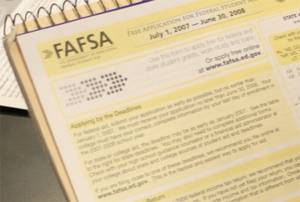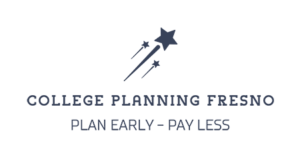Five Ways To Help Your Children Afford College
Are your children headed for higher education after high school?
As a parent with a son or daughter who is interested in pursuing the college path, your role is twofold:
- Supporting your child in meeting the academic goals necessary for college acceptance, and, ideally, scholarship or financial aid consideration
- Supporting your child financially, which requires careful preparation of finances
As the cost of college rises and the amount of financial aid opportunities decline, it’s important that you have a strong plan in place to help your kids achieve that acceptance letter from their dream school—and be able to afford it.
Read on for five things you can do that may help your kids afford college.
College Tip #1: Set Yourself Up for Scholarships
 It’s important for you to let your kids know from an early age that college is not a “free ride.” Equally important to having your finances in order to help afford college is having an academically and/or athletically driven student who is able to generate interest from scholarship opportunities. From an early age, encourage your children to maintain good study habits, pro-active outside the classroom activities and too stay motivated.
It’s important for you to let your kids know from an early age that college is not a “free ride.” Equally important to having your finances in order to help afford college is having an academically and/or athletically driven student who is able to generate interest from scholarship opportunities. From an early age, encourage your children to maintain good study habits, pro-active outside the classroom activities and too stay motivated.
Seeking out a qualified college prep and admissions expert can be a great investment. Please refer to our Services tab for more information.
College Tip #2: Don’t Over Fund Retirement Accounts
 You may think that “more is merrier” when funding your pre-tax retirement account. However, putting more than seven percent of your gross income into a pre-tax retirement savings plan, such as a 401K, may in fact position you to overpay income taxes throughout retirement (due to the probability of you being in a higher tax bracket and more vulnerable to government control) plus locks you out of your money that could otherwise stay liquid and be used to help fund college. Schedule a no-obligation consultation to discuss options that may be a good fit for you.
You may think that “more is merrier” when funding your pre-tax retirement account. However, putting more than seven percent of your gross income into a pre-tax retirement savings plan, such as a 401K, may in fact position you to overpay income taxes throughout retirement (due to the probability of you being in a higher tax bracket and more vulnerable to government control) plus locks you out of your money that could otherwise stay liquid and be used to help fund college. Schedule a no-obligation consultation to discuss options that may be a good fit for you.
College Tip #3: Avoid College-Specific Savings Accounts
 It sounds like a no-brainer, right? You’re saving for college, so why not use a college-specific savings plan, such as a 529? However, when you consider that a plan like this positions you to potentially lose 100 percent of your capital to your child’s college, rather than setting you up to possibly get the money back, it makes less sense. If you conduct an in-depth pro versus con analysis of these plans, you’ll see that the negatives may outweigh the positives.
It sounds like a no-brainer, right? You’re saving for college, so why not use a college-specific savings plan, such as a 529? However, when you consider that a plan like this positions you to potentially lose 100 percent of your capital to your child’s college, rather than setting you up to possibly get the money back, it makes less sense. If you conduct an in-depth pro versus con analysis of these plans, you’ll see that the negatives may outweigh the positives.
When considering savings options, you should be asking, “How might I get my hard-earned (and saved) money back after paying college?”
Without a cost recovery strategy in your savings plan, you’re at risk for:
- A potentially under-performing—or maybe worse—market while locked into a 10- or 18-year savings plan
- A possible halt in contributions to the plan if a parent becomes disabled or dies prematurely
- Fees that may negatively affect the amount available when college starts
- Ambiguity surrounding your money if your child doesn’t end up going to college or gets a full-ride scholarship
- Having insufficient savings if college costs rise in the future
Resist the urge to jump into a college-specific savings plan, and instead consult with a financial representative skilled in college savings and overall wealth building that may help you find the best options for your family. We can help.
College Tip #4: Find Suitable Financial Products That Fly Under the FAFSA Radar
 You may be wondering, what the heck is FAFSA?
You may be wondering, what the heck is FAFSA?
If you don’t already know, you’ll need to get acquainted with the Free Application for Federal Student Aid—a form that can be prepared annually by current and prospective college students (undergraduate and graduate) in the United States to determine their eligibility for student financial aid.
In addition to potentially recovering college costs, the other component to a sound college saving financial strategy is to position your money and investments in a way that will not affect your child’s eligibility for financial aid.
Investments that may be reported on the FAFSA include:
- Education savings accounts like Coverdell and 529 plans
- Real estate (aside from your primary residence)
- Rental property (including a unit within your family home that’s rented to someone other than a family member)
- Trust funds
- Custodial accounts like Uniform Gift to Minors Act (UGMA) and Uniform Transfer to Minors Act (UTMA)
- Money market funds
- Mutual funds
- Certificates of deposit
- Stocks
- Stock options
- Bonds
- Installment and land sale contracts (including mortgages held)
- Other securities
Conversely, investments that fly under the FAFSA radar may include:
- The home in which you live
- Cash value life insurance and retirement plans (i.e. 401K, pension funds, annuities, non-education IRAs, Keogh plans)
Choose investments that allow your wealth building momentum to continue while not affecting your child’s eligibility for maximum financial aid. Schedule a free consultation to learn more about these details.
College Tip #5: Have Access to a Financial Model that Lets You See the “Big Picture”
 If you liken saving for college to playing a game of chess, you know how invaluable the “game board” is. Unfortunately, most people play the college funding game without a board that provides the big picture of financial moves at their fingertips. As a result, they default to the easiest, most convenient move available—college savings plans—which offer no possible cost recovery strategy, as we’ve already discussed.
If you liken saving for college to playing a game of chess, you know how invaluable the “game board” is. Unfortunately, most people play the college funding game without a board that provides the big picture of financial moves at their fingertips. As a result, they default to the easiest, most convenient move available—college savings plans—which offer no possible cost recovery strategy, as we’ve already discussed.
There is a time-tested financial model that incorporates an element for every financial product made in the country, offering you a complete visual of all potential resources to fund college. By allowing you to see your entire financial life at a glance, coordination and wealth management becomes a straightforward, uncomplicated process. For a test drive, schedule a free consultation.

